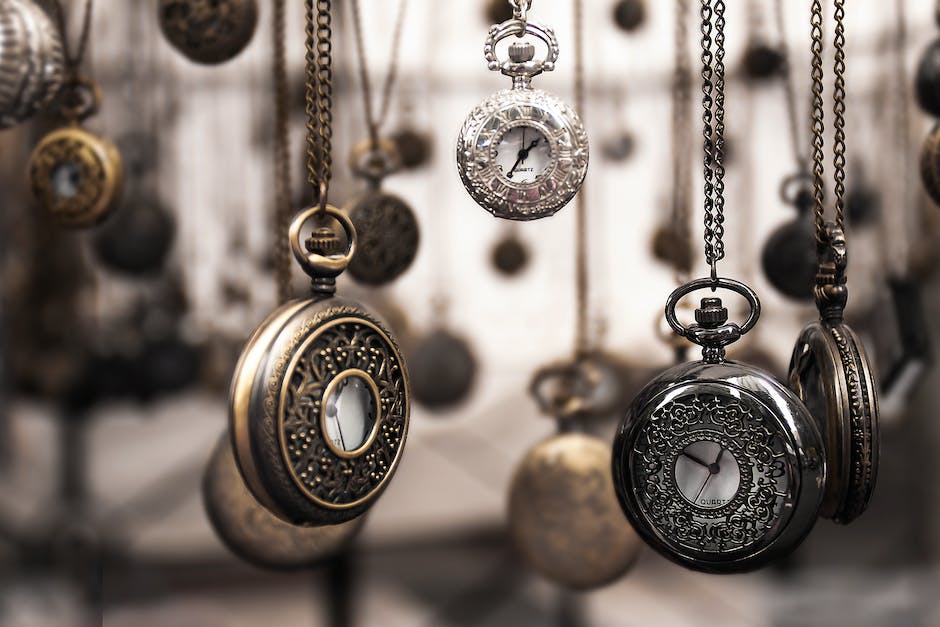Is Wearing Waist Beads Cultural Appropriation

The wearing of waist beads has become a popular fashion trend in recent years, and there has been some debate about whether this constitutes cultural appropriation. While waist beads have a long and rich history in many African and Caribbean cultures, there is an increasing trend of non-African people wearing them as a fashion statement. This article will explore the debate around cultural appropriation in regards to waist beads, looking at both the positive and negative aspects of this trend.Waist beads are small glass or metal beads that are tied around the waist. They originated in West Africa and are traditionally worn by women and some men as part of their ceremonial or spiritual attire. Waist beads can be used to enhance beauty, symbolize femininity, or even as a tool to monitor weight gain. In some cultures, they are also given as a sign of love and commitment between two people.
History of Waist Beads
Waist beads are one of the most ancient forms of body adornment and have been worn by women for centuries in many cultures around the world. The history of waist beads dates back as far as Ancient Egypt, where they were used to denote a woman’s marital status or signify her role in society. In some African cultures, waist beads were used to keep track of a woman’s sexual activity or even protect her from evil spirits. In other parts of the world, waist beads were used to denote wealth and social status, while in India they represented a sign of fertility and good health. Waist beads have also been known to represent spiritual protection, symbolize strength and femininity, and even provide enhanced pleasure during sexual encounters.
Today, waist beads are still worn around the world for many different reasons. Some people wear them simply for their aesthetic beauty while others use them as a way to accessorize their outfits. Others may wear them as a reminder of their cultural heritage or spiritual beliefs. No matter what reason you choose to wear them for, waist beads can be a beautiful addition to any wardrobe that adds a unique touch to your style.
The Cultural Significance of Waist Beads
Waist beads have been worn by cultures around the world for centuries. Worn around the waist, these beaded accessories are believed to hold spiritual and cultural significance. In many African cultures, waist beads serve as a symbol of femininity and fertility. For some, it is also a sign of wealth and status.
In some parts of Africa, waist beads are typically given to young girls when they reach puberty. This is seen as a rite of passage into womanhood and is often celebrated with traditional ceremonies. In addition to being a symbol of fertility, waist beads are also believed to bring good luck and protection from harm.
In West Africa, waist beads may be given as gifts between friends or family members to show appreciation or love. They can also be worn as an expression of beauty or fashion. The colors and patterns used in the beadwork may signify different meanings depending on the region or cultural tradition of the wearer.
In recent years, waist beads have become more popular in Western culture as well. Many people wear them for aesthetic reasons or simply for their spiritual significance. While they may not hold the same cultural meaning in all parts of the world, their popularity continues to grow as more people embrace them for their beauty and symbolism.
Regardless of where they are worn, waist beads can be seen as an important part of many cultures that have been passed down through generations. As more people learn about their history and meaning, they continue to serve as a source of inspiration and connection between different cultures around the world.
Who Wears Waist Beads?
Waist beads are worn by many women around the world, from Africa to the Caribbean. They have been worn for centuries, with their origin dating back to ancient Egypt. Waist beads are often seen as a symbol of femininity, fertility and sexuality. In some cultures they are also used as a status symbol or to denote wealth or power. In certain parts of Africa, waist beads can even be used as an indication of marital status.
Today, waist beads are worn by many different types of women for various reasons. They can be seen on the beach, at festivals and even in everyday life. Women from all walks of life wear waist beads for beauty, fashion and spiritual reasons. Some women wear them to attract attention or to make a fashion statement while others use them for spiritual purposes such as prayer or meditation.
Some women choose to wear waist beads for their health benefits as well. For example, some believe that wearing waist beads can help improve posture and strengthen the core muscles in the stomach area. Additionally, they may help with weight loss by making one more aware of one’s body shape and size.
Regardless of why an individual chooses to wear waist beads, they can be an incredibly beautiful addition to any outfit and provide a unique look that is sure to draw attention!
Different Styles and Uses of Waist Beads
Waist beads have been a part of adornment culture for centuries, and today they are enjoying a resurgence in popularity. They come in a variety of styles, colors, and sizes, making them suitable for all kinds of body types and fashion statements. Waist beads serve many purposes, from enhancing your curves to being used as a way to measure your waist size or even as protection from evil spirits. Let’s take a look at some of the different styles and uses of waist beads.
Traditional waist beads are made from glass or plastic beads strung together on a string. They come in a variety of colors, shapes, and sizes to suit any taste or body type. Some traditional waist bead styles feature colorful beaded designs that are often seen in African cultures. Others feature more modern designs such as geometric patterns or metallic accents.
In addition to being aesthetically pleasing, waist beads also serve as protective amulets against evil spirits or bad luck. This is especially true in some African cultures where waist beads are believed to bring good luck and repel negative energies. In some tribes, it is even customary for women to give their daughters waist beads at puberty as a way to mark their transition into womanhood.
Waist beads can also be used as tools for measuring your waist size and progress towards fitness goals like weight loss or toning up your midsection. You can keep track of your progress by measuring the circumference of your waist with the help of the stringed bead necklace that you wear around it. This is especially useful if you have recently begun an exercise routine since this will give you an easy way to gauge whether you are making any progress or not without having to step on the scale every day.
No matter what style or purpose you choose for your waist beads, they make an excellent addition to any wardrobe! Whether you’re looking for traditional beaded designs with religious connotations, modern geometric patterns for added style points, or simply want something that will help measure your progress towards fitness goals – there’s sure to be something perfect for you!

Is Wearing Waist Beads Cultural Appropriation?
Cultural appropriation is a sensitive and complicated subject. It occurs when members of a dominant culture adopt elements of a minority culture without fully understanding the history and meaning of those elements. This can have serious impacts on the minority culture, particularly if it is a marginalized group that does not have access to power or privilege. In the case of waist beads, there are both positive and negative implications of wearing them outside of their original cultural context.
On the one hand, wearing waist beads can be seen as an act of appreciation and respect for the cultures they originate from. People may wear them simply because they find them beautiful or fashionable, without any intention to disrespect or appropriate another culture’s traditions. In this scenario, wearing waist beads could be seen as a form of creative expression that celebrates different cultures and brings attention to cultural diversity.
However, it is important to recognize that there are certain contexts in which wearing waist beads can be considered inappropriate or offensive. This is especially true if someone chooses to wear them without knowing their history or significance in other cultures. For example, wearing waist beads at a cultural event held by members of the originating culture could be viewed as disrespectful since it would deny them ownership over their own traditions. Furthermore, selling waist beads without crediting their origin could also be seen as exploitative and insensitive.
Overall, whether or not wearing waist beads is considered cultural appropriation depends on the context in which it occurs. If done out of sincere appreciation for another culture’s traditions, then it could be seen as a positive experience that celebrates diversity and encourages intercultural understanding. However, if done with ignorance or disregard for the originating culture’s values then it can be considered an act of appropriation and should be avoided.
Are Waist Beads Similar to the Necklaces Worn on Naked and Afraid in Cultural Significance?
Waist beads and the necklaces worn on “Naked and Afraid” both carry deep cultural significance, often symbolizing identity, protection, and empowerment. Understanding the meanings of survival necklaces reveals the connection between adornment and the human experience, as each piece reflects personal stories and cultural heritage, much like waist beads do.
Arguments Against Wearing Waist Beads
For some people, wearing waist beads is seen as a bold form of self-expression. However, there are a few arguments against it that should be considered. One of the main arguments against wearing waist beads is the potential health risks posed by the materials used to make them. Waist beads are often made with synthetic materials that can cause skin irritation or allergic reactions. Additionally, waist beads can get caught on clothing and jewelry, which can cause discomfort or even injury.
Another concern about wearing waist beads is that they may not fit correctly, leading to an uncomfortable experience. If the beads are too tight, they can cause pain or even restrict movement. On the other hand, if they are too loose, they can fall off and become a choking hazard for young children.
Finally, there is also the potential risk of infection from bacteria that may be present on waist beads. The materials used to make them often contain microscopic pores that can harbor bacteria and other contaminants. This can lead to skin infections if the wearer does not take proper precautions when cleaning or storing their waist beads.
In summary, while wearing waist beads can be a form of self-expression for some people, there are several potential risks associated with them that should be taken into consideration before making a decision on whether or not to wear them.
Positive Arguments For Wearing Waist Beads
Waist beads have been a part of many cultures for centuries, and they are often seen as a symbol of beauty, femininity and status. Wearing waist beads has many benefits, including health, spiritual and social benefits. From an aesthetic point of view, waist beads can be a great way to add color and texture to an outfit or to complement an existing piece of jewelry. They also provide protection against certain illnesses and diseases due to their spiritual significance. Additionally, waist beads can be used to enhance confidence and self-esteem, as well as make a statement about one’s culture or identity.
On the health side, some believe that wearing waist beads helps to stimulate the digestive system by providing gentle pressure on the stomach area. It is believed that this pressure helps to promote proper digestion and elimination of toxins from the body. Additionally, wearing waist beads is also said to reduce menstrual cramps and alleviate premenstrual symptoms by stimulating circulation in the lower abdomen.
From a spiritual perspective, some people believe that wearing waist beads enhances their connection with their higher self. It is thought that these pieces of jewelry represent inner strength and serve as a reminder that beauty comes from within. This belief is rooted in African traditions where waist beads were often given to young girls as an initiation into womanhood or adulthood. As such, they are seen as symbols of strength, courage and power.
Lastly, wearing waist beads can be a great way to make a statement about one’s culture or identity. Waist beads come in various colors which can represent different things depending on the cultural background of the wearer. Some cultures might use certain colors for traditional ceremonies or holidays while others might use them as symbols of protection or good luck charms. Regardless of their purpose or symbolism, these pieces can help express one’s identity in a unique way.

Conclusion
The debate on whether waist beads are a form of cultural appropriation or not is an ongoing one. While some people believe that wearing waist beads is a form of cultural appropriation, others argue that it is not and that it should be seen as a form of appreciation and understanding of another culture. Ultimately, it comes down to the individual to decide what they think is appropriate for themselves. It is important to respect the culture and beliefs of other people when deciding to wear waist beads or any other type of cultural clothing or accessory.
Wearing waist beads can be a beautiful way to express oneself, but if done in a way that disrespects the meaning behind them, then it can become an act of cultural appropriation. It is up to each individual to carefully consider both sides before making their own decision on whether wearing waist beads is right for them.
